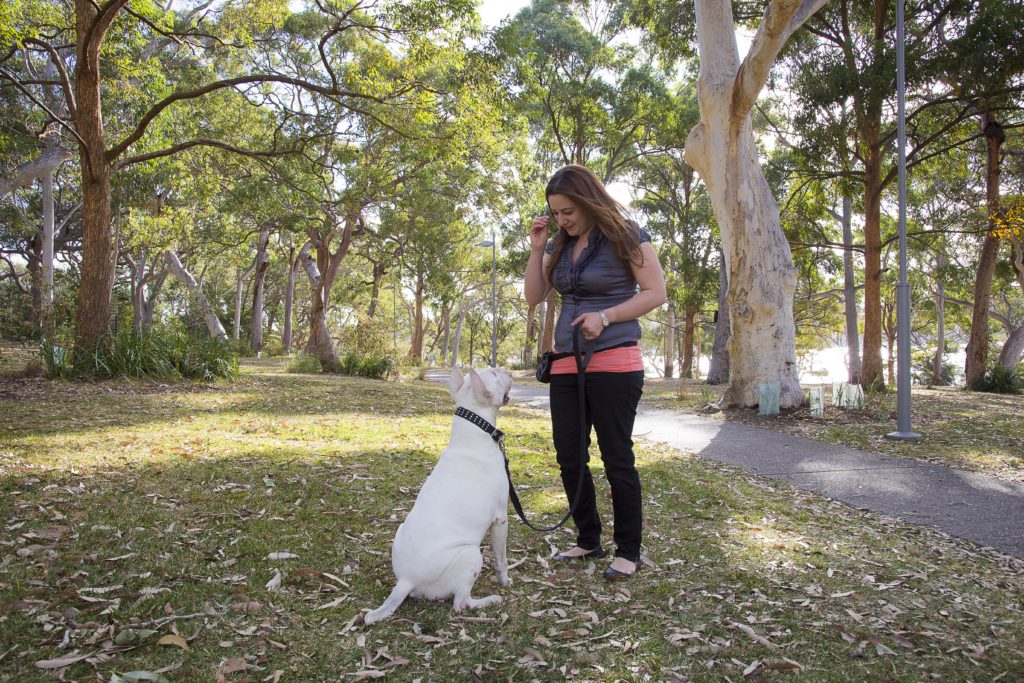At Pet Behaviour Vet, we only use the most up-to-date scientifically proven gentle and positive methods to train and treat our patients. We do not subscribe to the disproven Dominance Theory, instead we prefer to utilise modern science-based methods based on ‘Learning Theory’ to understand and motivate our patients (and their owners!). Our vets also use their medical knowledge to diagnose and treat any underlying physical causes (including mental illnesses) that may be contributing to the behavioural problem.
This ultimately means that we do not use fear-mongering, intimidation, ‘pressure’, or physical or verbal punishment to scare our patients into obeying. What we do use are motivating tools like food, toys, games, activities, attention, and most importantly, the feeling of ‘safety’ to gain out patients’ trust and keep them interested in what we want them to do. We do not condone the use of prong collars, choker chains, electric collars, citronella collars, throw bags/chains, shouting ‘Bah!’, saying ‘Tsst!’, poking, ‘disagreeing’, or using physical force such as ‘alpha’ rolls in dog training- there is always a safer, more effective and humane alternative available.
To use shock as an effective dog training method you will need:
– A thorough understanding of canine behavior.
– A thorough understanding of learning theory.
– Impeccable timing.
And if you have those three things, you don’t need a shock collar.
Dr. Ian Dunbar
As the behavioural and veterinary sciences are ever-changing fields, there is absolutely no room for being stuck in the past. As such, our staff are constantly putting themselves in situations where they can learn about the latest in scientific research and recommendations. Wherever possible, our recommendations regarding the management of your pet’s behavioural problem are backed up by scientific evidence and not by anecdote (“I heard that this technique worked for a friend of mine”, or “I’ve been doing this for years and it works for me”). This is why our methods are not patented, nor have they been packaged and marketed as being unique. Quite the contrary- they have been proven through science and taught in dog training schools and veterinary faculties around the world.
We don’t use abstract concepts and buzz words like ‘energy’, ‘leadership’, ‘respect’, or ‘dog whispering’… instead we like to explain difficult concepts to our clients clearly, using everyday language. We are also not afraid to tell you that we do not offer money-back guarantees, as we know that animals are not predictable robots, but living, biological beings that do not always read the textbooks! We will however never give up on your pet until we can find a solution to their problem, even if that involves referral to another professional.
The following quote sums up our training philosophy:
Progressive Reinforcement Training essentially means teaching by reinforcing and training desired behaviors, interrupting and preventing undesirable behaviors without the intentional use of physical or psychological intimidation and taking into consideration the learner’s physical health and emotional state. Educating oneself with the goal of employing humane, effective training based on the latest scientific evidence.
Emily Larlham, Progressive Reinforcement Training Manifesto

